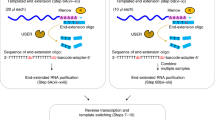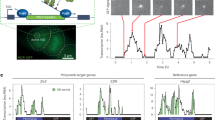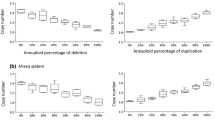Abstract
COMPARATIVELY little is known of the cytology of the genus Polygala. Table 1 gives chromosome counts made on ten European and one South African species, together with previous counts for comparison.
This is a preview of subscription content, access via your institution
Access options
Subscribe to this journal
Receive 51 print issues and online access
$199.00 per year
only $3.90 per issue
Buy this article
- Purchase on SpringerLink
- Instant access to full article PDF
Prices may be subject to local taxes which are calculated during checkout
Similar content being viewed by others
References
Chodat, R., “Monographia Polygalacearum” (1891).
Baksay, L., Ann. Hist.-Nat. Mus. Nat. Hung., 7, 321 (1956).
Larsen, K., Bot. Notis., 109, 293 (1956).
Mattick, in Tischler, G., “Chromosomenzahlen der Gefasspflanzen Mitteleuropas” (1950).
Wulff, H. D., Ber. deutsch. bot. Ges., 56, 247 (1938).
Löve, A., and Löve, R., Arch. Botan., 3, A, 381 (1944).
Glendinning, D. R., Bull. Soc. Neuchâtel Sci. Nat., 72, 161 (1955).
Hagerup, O., Hereditas, 16, 19 (1932).
Elliott, C. G., Heredity, 9, 385 (1955).
Author information
Authors and Affiliations
Rights and permissions
About this article
Cite this article
GLENDINNING, D. Cytology of Polygala . Nature 188, 604–605 (1960). https://doi.org/10.1038/188604a0
Issue date:
DOI: https://doi.org/10.1038/188604a0



